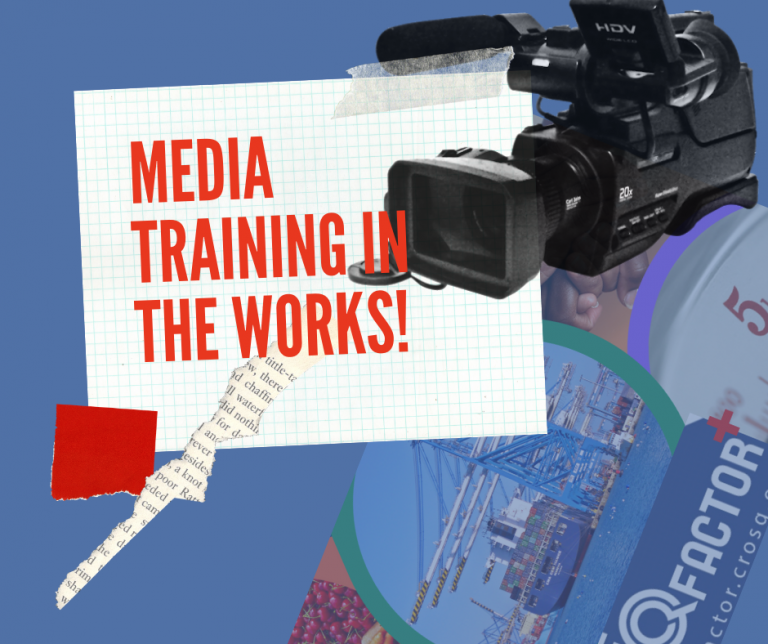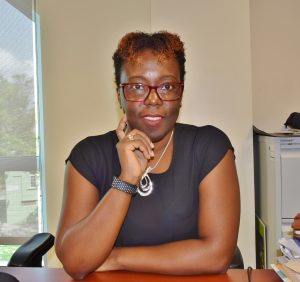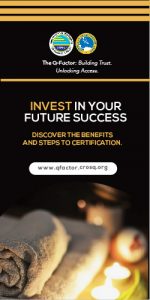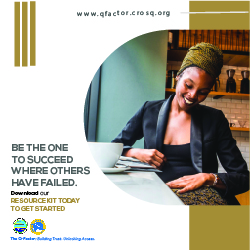Media Training in the Works
- crosqblog
- on Jul, 08, 2020
- Category 11th EDF EPA TBT Programme
- No Comments.

As promotion of quality services in the region starts to ramp up with the reopening or partial reopening of businesses and borders across CARICOM, CROSQ is looking at engaging the media in sensitization sessions aimed at bringing quality infrastructure alive in a real way.
The workshops, which were originally intended as face-to-face sessions in each of the countries implementing the Technical Barriers to Trade (TBT) Component of the 11th European Development Fund EDF), Economic Partnership Agreement (EPA) Programme, are now being repurposed for online delivery.
CROSQ’s Technical Officer, Quality Promotions, Ms. Latoya Burnham broke down what was behind the initial concept and what would now possibly happen as a direct result of COVID19.
“When the concept was originally designed, the idea was to have the media in for half-day sessions, ahead of major QI workshops that were being planned in areas like standards, metrology – which is all about the measurement science and accuracy, as well as accreditation and conformity assessment. So for each of the pillars of QI, there were going to be scheduled workshops with various stakeholder groups, and ahead of those workshops we would have sensitisation and education sessions for the media where we would explain in real terms, using practical examples of what QI is and how it works.
“We would pair those media sessions – involving practitioners from all aspect of the media, broadcasters, print journalists, bloggers, etc – with tours of national QI institutions or businesses who’ve implemented quality services, so you could see the national impact and understand how QI hits the ground in real ways. But since COVID put limitations on travel and face-to-face engagements like what were being planned, we had to change things up. So we are now conversing with our National Standards Bureaux to coordinate what those engagements will look like in an online setting. We really hope we can still encompass all or most of the elements we had intended,” explained Ms. Burnham.
Journalists will have opportunities to not just sit in presentations, but to ask questions, think through scenarios related to reporting on QI issues, and also come away with resources for the next time they needed to speak authoritatively on issues of quality.
“We often assume our journalists know it all, and that if they don’t know they will ask. Sometimes a journalist’s workday is so packed and so fast-pace that we don’t think about how much they actually have to know on every single subject they encounter. One of the ways those of us who work in quality can help is to bring knowledge to the table and then encourage the journalists, the media fraternity, to engage with us other than at an assignment on a particular thing. If we really want an educated public, we have to work hand-in-hand with those who help that education process along,” said the officer.
It is hoped the sessions will begin from the end of summer, as countries indicate their preferences and the events are crafted with the help of the national bureau.





